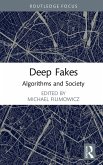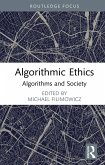The internet in general and social media in particular have relativized, through their global, complex and instantaneous information flows, assumptions about truth and authority in fact-based content. This has created new opportunities for state actors to use information beyond traditional conceptions of propaganda to directly assault a public's conception of reality. Additionally, almost anyone has the capability to challenge evidential claims through narratives and imagery alone as there is a wide appetite online for alternative realities. This requires new approaches to media literacy in education, the creative arts and our acts of media consumption and dissemination. The volume covers the ways that social media platforms amplify and catalyze the messages of politicians and influencers, the ambivalence of algorithms that can both generate and detect problematic information, how fake news imitates the style of memes to gain widespread social traction and virality, and how artists have intentionally created "sicko AIs" in new media performances to highlight the ethical risks of increasingly "intelligent" technologies.
Scholars and students from many backgrounds, as well as policy makers, journalists and the general reading public, will find a multidisciplinary approach to questions posed by information disorder research from the fields of communication, social psychology, human-computer interaction, journalism, media, semiotics and new media art.
Dieser Download kann aus rechtlichen Gründen nur mit Rechnungsadresse in A, B, BG, CY, CZ, D, DK, EW, E, FIN, F, GR, HR, H, IRL, I, LT, L, LR, M, NL, PL, P, R, S, SLO, SK ausgeliefert werden.









